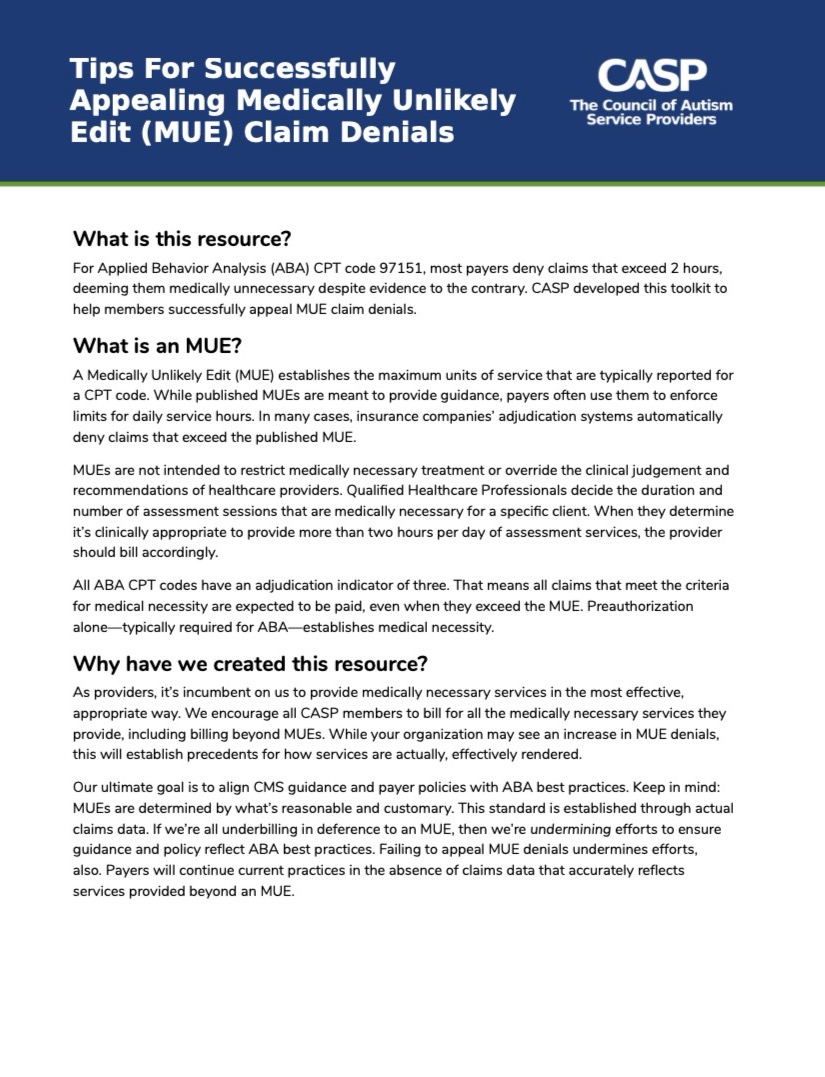Tips for Successfully Appealing MUE Claim Denials
for CPT Code 97151
What is this resource?
For Applied Behavior Analysis (ABA) CPT code 97151, most payers deny claims that exceed 2 hours, deeming them medically unnecessary despite evidence to the contrary. CASP developed this toolkit to help members successfully appeal MUE claim denials.
A Medically Unlikely Edit (MUE) establishes the maximum units of service that are typically reported for a CPT code. While published MUEs are meant to provide guidance, payers often use them to enforce limits for daily service hours. In many cases, insurance companies’ adjudication systems automatically deny claims that exceed the published MUE.
MUEs are not intended to restrict medically necessary treatment or override the clinical judgement and recommendations of healthcare providers. Qualified Healthcare Professionals decide the duration and number of assessment sessions that are medically necessary for a specific client. When they determine it’s clinically appropriate to provide more than two hours per day of assessment services, the provider should bill accordingly.
All ABA CPT codes have an adjudication indicator of three. That means all claims that meet the criteria for medical necessity are expected to be paid, even when they exceed the MUE. Preauthorization alone—typically required for ABA—establishes medical necessity.
Why have we created this resource?
As providers, it’s incumbent on us to provide medically necessary services in the most effective, appropriate way. We encourage all CASP members to bill for all the medically necessary services they provide, including billing beyond MUEs. While your organization may see an increase in MUE denials, this will establish precedents for how services are actually, effectively rendered.
Our ultimate goal is to align CMS guidance and payer policies with ABA best practices. Keep in mind: MUEs are determined by what’s reasonable and customary. This standard is established through actual claims data. If we’re all underbilling in deference to an MUE, then we’re undermining efforts to ensure guidance and policy reflect ABA best practices. Failing to appeal MUE denials undermines efforts, also. Payers will continue current practices in the absence of claims data that accurately reflects
services provided beyond an MUE.



